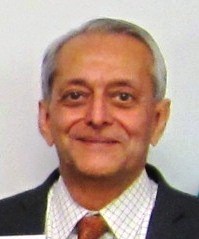Workshop I
Title: Using CHP Simulation Models to Accurately Predict True Net Utilities Opex Impact of Proposed or Planned Plant Project
Abstract:
Plant utility systems - fuels, steam, power (mech + elec), water and sewer - have a complex inter-relationship especially if the facility uses
- Multiple fuels – solids, liquids, gas
- Multiple boilers generating steam at different pressures and quality
- Multiple steam headers (typically 3-5)
- Multiple steam and gas turbines for on-site power generation
- Multiple utility suppliers/contracts, e.g. flat rate, step-rate, time-of-use, etc
The average cost for each utility estimated by the company’s accounting depart is designed for financial reporting purposes, but can be disastrously misleading for evaluating project economics. Combined Heat and Power (CHP) simulation models are a quick, cheap, accurate, and convenient solution for dealing with this problem.
The workshop will use the CHP model for an actual chemical plant to demonstrate how utility costs are affected by variations in
- steam and power usage
- condensate recovery rate
- Deaerator pressure
- BFW quality (cycles of concentration)
and other significant operating parameters
The model will be provided as an Excel spreadsheet with approximate correlations for steam properties – good enough for preliminary screening and planning, but not for final design. Sometimes the sequence of implementing mutually dependent projects can also impact economics. A previously unpublished equation developed by the speaker to properly account for groups of dependent projects (savings from individual projects are not additive) will also be presented.
Bio: Jimmy Kumana, founder and CEO of Kumana & Associates
 Mr. Kumana holds an M.S. degree in Chemical Engineering from the University of Cincinnati. He has more than 35 years of experience in the areas of process design and energy/water optimization. He worked for both manufacturing and engineering design companies before establishing Kumana & Associates, a Houston-based consulting firm specializing in process optimization techniques, including Pinch Analysis, Load Management, Variable Speed Drives for rotating machinery, System Performance Analysis via Simulation Modeling, and KPIs.
Mr. Kumana holds an M.S. degree in Chemical Engineering from the University of Cincinnati. He has more than 35 years of experience in the areas of process design and energy/water optimization. He worked for both manufacturing and engineering design companies before establishing Kumana & Associates, a Houston-based consulting firm specializing in process optimization techniques, including Pinch Analysis, Load Management, Variable Speed Drives for rotating machinery, System Performance Analysis via Simulation Modeling, and KPIs.
He and his company have been consultants to blue-chip chemical and Oil & Gas companies world-wide, including DuPont, Union Carbide (Dow Chem), Monsanto, Solutia (now part of Eastman Chemical), Lubrizol, Mitsubishi, SASOL, SABIC, Saudi Aramco, PetroChina, Pemex, ConocoPhillips, and Tesoro. He has also been a consultant to major energy utilities including EPRI, GRI, Southern Cal Edison, Southern Cal Gas, Xcel Energy, and Dubai Gas, as well as to the US Dept of Energy, Natural Resources Canada, the Egyptian Ministry of Petroleum and Minerals, the World Bank (IFC), and UNIDO.
Mr. Kumana has authored or co-authored over 70 technical papers and book chapters, and was the instructor for AIChE’s course on Pinch Analysis for Heat Recovery Optimization for many years during the 1990s. For the past 7 years he has been teaching a course on Energy Efficiency Optimization in the Hydrocarbon Industries designed for plant engineers, offered twice a year in Houston. He can be reached at Jimmy.Kumana@gmail.com
Workshop II
Title: Optimizing LNG Liquifaction
Abstract:
LNG liquefaction is an energy-intensive process, and thus lends itself to optimization. Our work highlights the propane/mixed refrigerant (C3MR) section of this process. A common practice for C3MR optimization is to connect a generic optimization engine to a process simulator. While this approach can work well for adjusting a single type of independent variable, attempting to adjust many variables can lead to local optima, trapping the optimization engine.
Using CHEMCAD’s integrated optimization engine and multi-core technology, we can easily set up rigorous optimizations, run them efficiently, and have a high degree of confidence that our solution is the global optimum.
Bio: Trevor Rice
Trevor obtained his BS ChE from Rice University in 2011. Since then he has worked as a Systems Engineer for Chemstations. In 2016 Trevor served as the STS YP Chair, and he currently serves as the YP webmaster and assists with the audio/video setup.
- Log in to post comments
